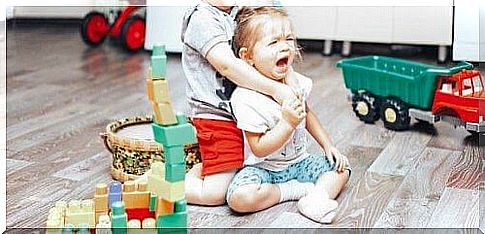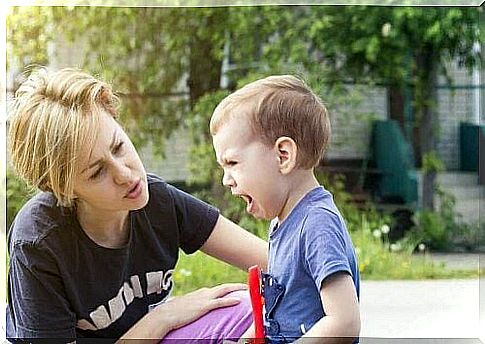How To Control Fighting Between Children

We often observe fights between children, as this is an emotion that all human beings experience. Children usually start fighting at age two through adolescence.
They fight to confront their peers or older children with different emotional situations or because they activate survival instincts. Children also fight younger peers to dominate or impose their will.
When it comes to children and fighting, the role of the parents is fundamental. Children learn at home about things like respect and empathy for others, boundaries, and most importantly, self-control.
How to control fighting between children
When younger children fight each other, they tend to:
- to bite
- to pull hair
- to push
- to insult the other
- to hit
As they get older, they can physically attack and even bully others. Teens can be even more violent. During puberty, teens tend to push boundaries.
Here are six important tips to help your child better manage conflict.
1. Show them the power of words

You need to teach your child the power of words over violence. Children need to know that they should first try to talk to the person they are disagreeing with.
Children should try to be rational instead of using violence to solve problems. Of course, you shouldn’t be violent towards your child if you want to teach him that violence is not the answer. So you should not punish your children with violence or aggressiveness.
2. Prevent fighting between children by setting an example yourself
All people have outbursts of annoyance that force them to confront others. What matters most, though, is how we monitor and manage those eruptions. Children are a reflection of their home environment, so their response will depend on the emotional education you have instilled in your children.
If you are an angry parent who attacks and insults others and throws things against the wall, then you cannot ask your children to act differently. Your example will influence them more than the advice or recommendations you give them.
3. Promote wisdom and calm instead of fighting between children
As we mentioned, children learn to control their emotions at home. You must teach them to act wisely when faced with a situation that may cause conflict or discomfort.
Remind your child that although we are animals by nature, we cannot act instinctively and irrationally towards others. Teaching them to identify their emotions and know how to set boundaries is essential, especially in those tense moments.
4. Remind them the world doesn’t revolve around them
Children need to learn that they are not always right and that the world does not revolve around them. Parents need to make their children understand that they are part of a group of people with different tastes and preferences and that everyone deserves respect.
They need to understand that what they say or do will not always be the priority of others and that they should not cause problems with others because of this. The respect they command will make them think before being aggressive with others.
5. Teach Them to Evaluate the Consequences
It is important to show your child the consequences of violent actions such as:
- rejection
- hurt others
- abuse
- and so on
Children need to learn to see the consequences that fighting another person can have. It doesn’t matter if your child is still young, show them the damage they can cause. In this way, they gradually learn the best way to deal with a conflict situation.
6. Teach them that communication is key

While it may seem cliché to talk about parent-child communication, that is really the key that will enable your child to understand many concepts related to conflict resolution.
Talk to your child, listen to him and ask him important questions about his daily life. That way you get to know him so that you can properly guide him to deal with conflict appropriately.
Your role as a parent is to guide your children

It is important that you are aware of this fact. You are the one who has to set order and boundaries for respect. If you must punish your children, do so firmly, but not aggressively.
Avoid changing your mind or becoming indulgent if your child is always causing trouble with others. If you are flexible with violence, your child will grow up believing that it must always fall back on violence.
Children and young people have their own dynamics. Fights between children and even siblings are common. It is our job as parents to teach them to deal with problems appropriately based on their age.
Trust your instincts and teach your child to manage their emotions. In this way he will grow up to be an empathetic, rational and happy adult.









